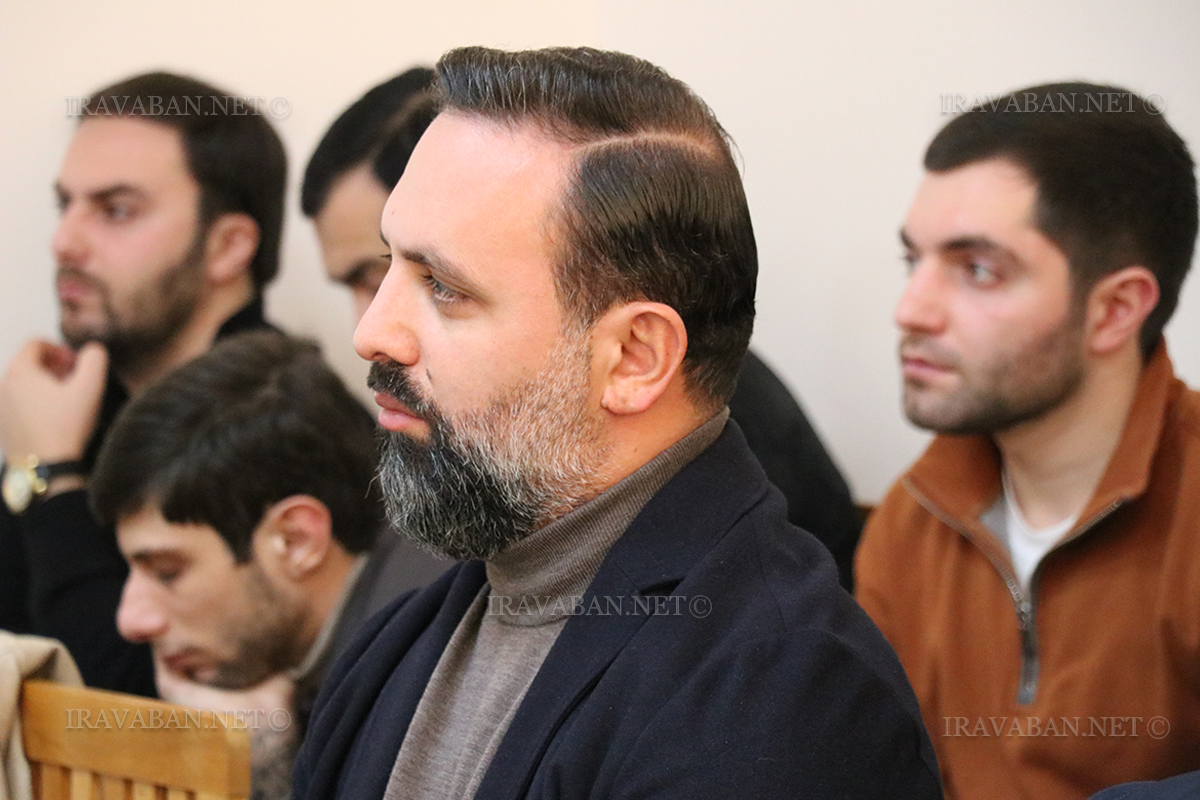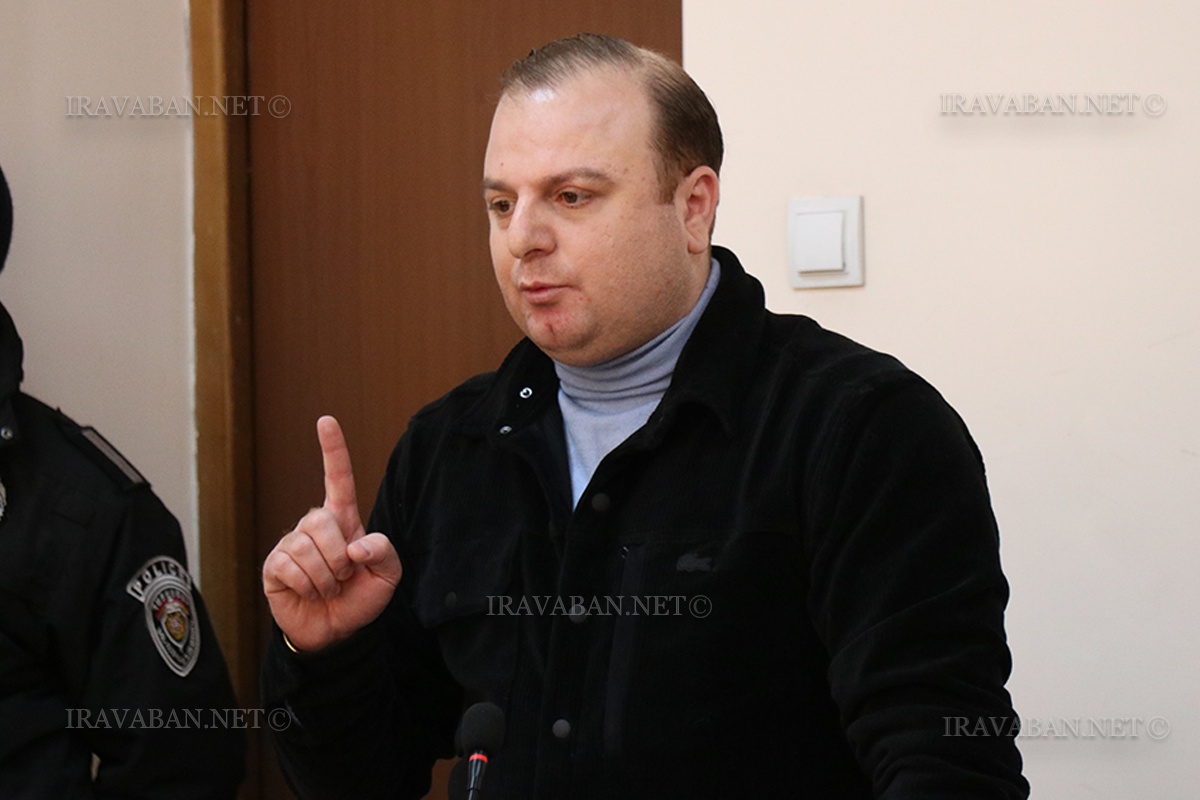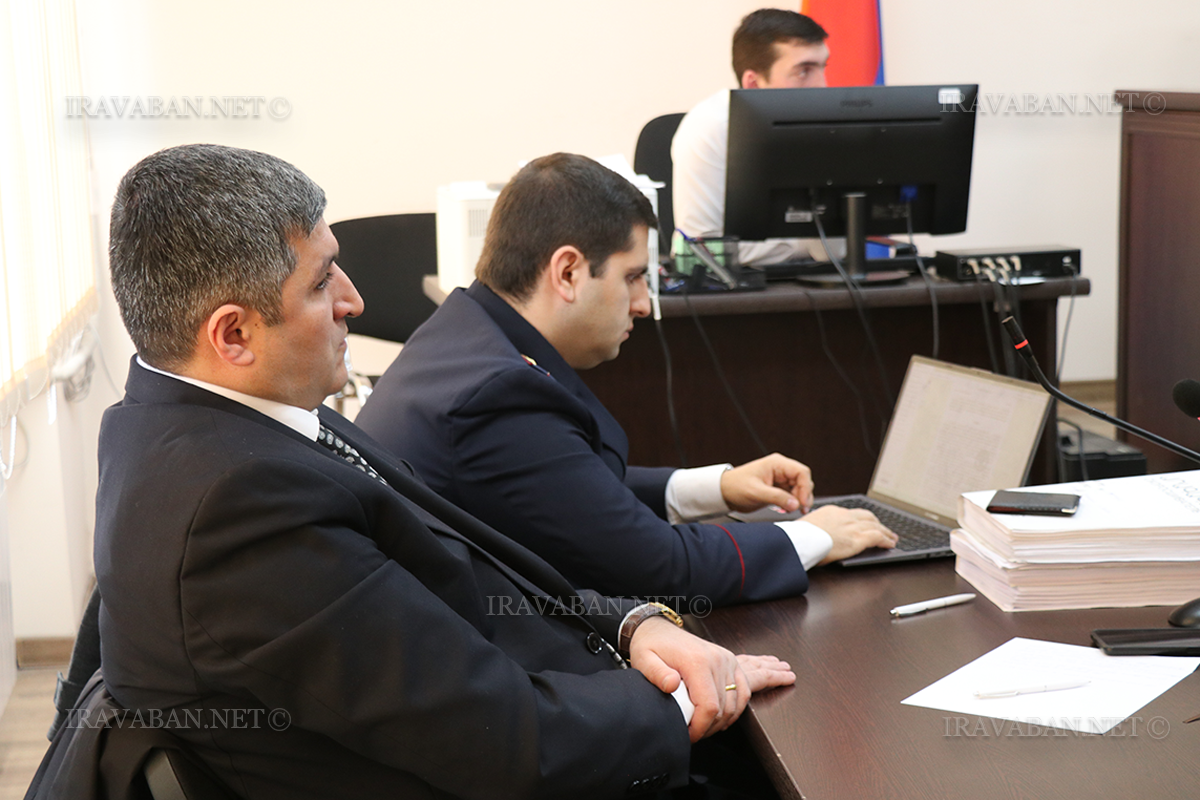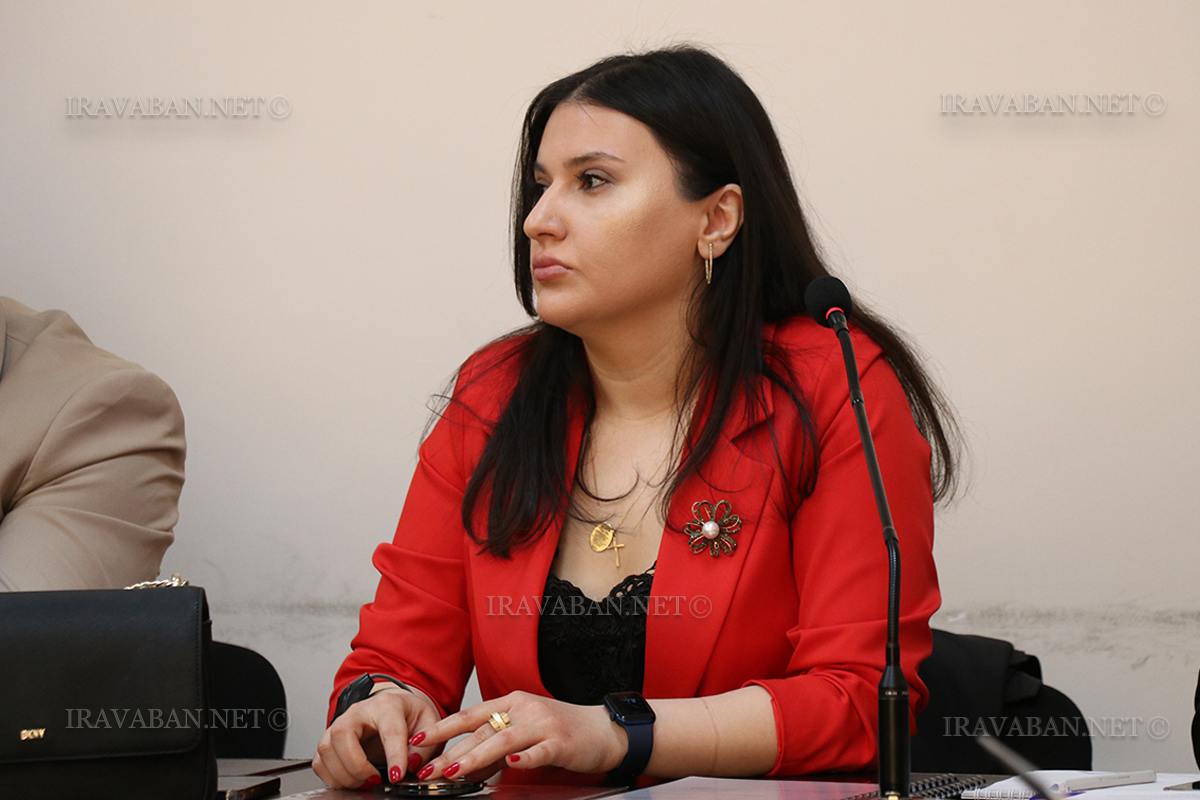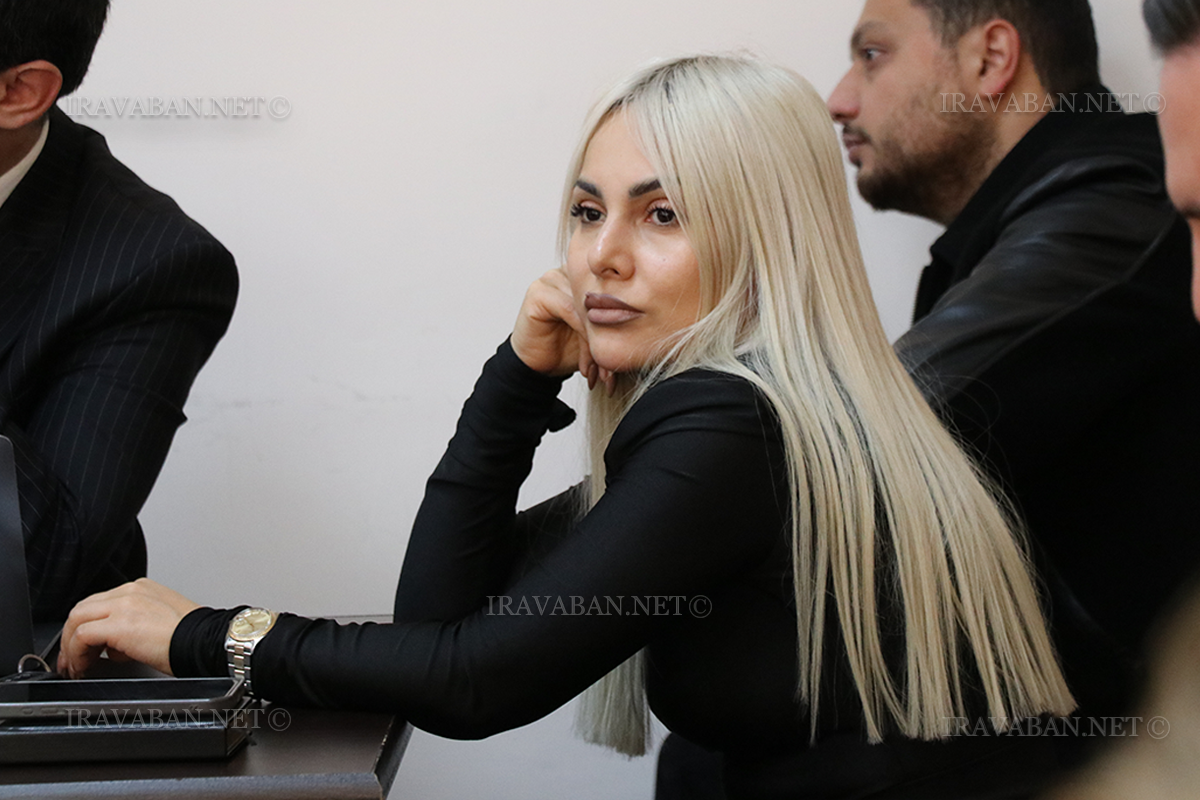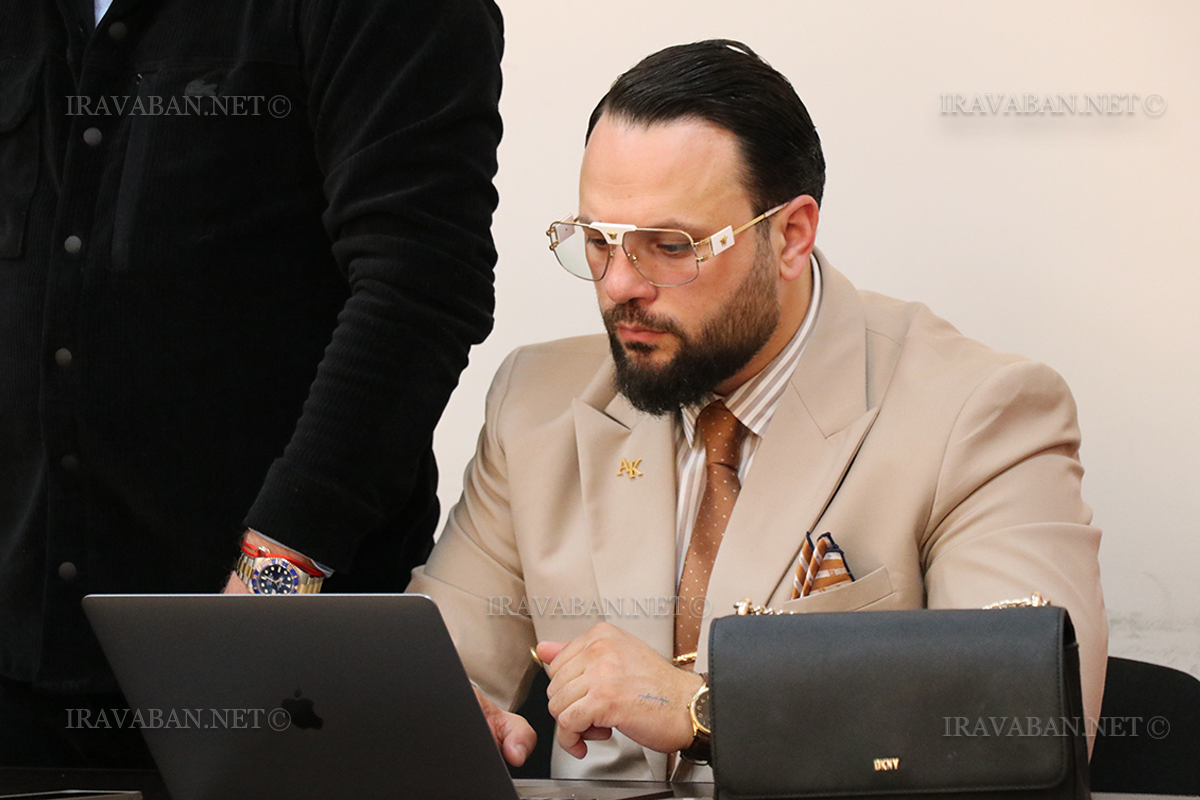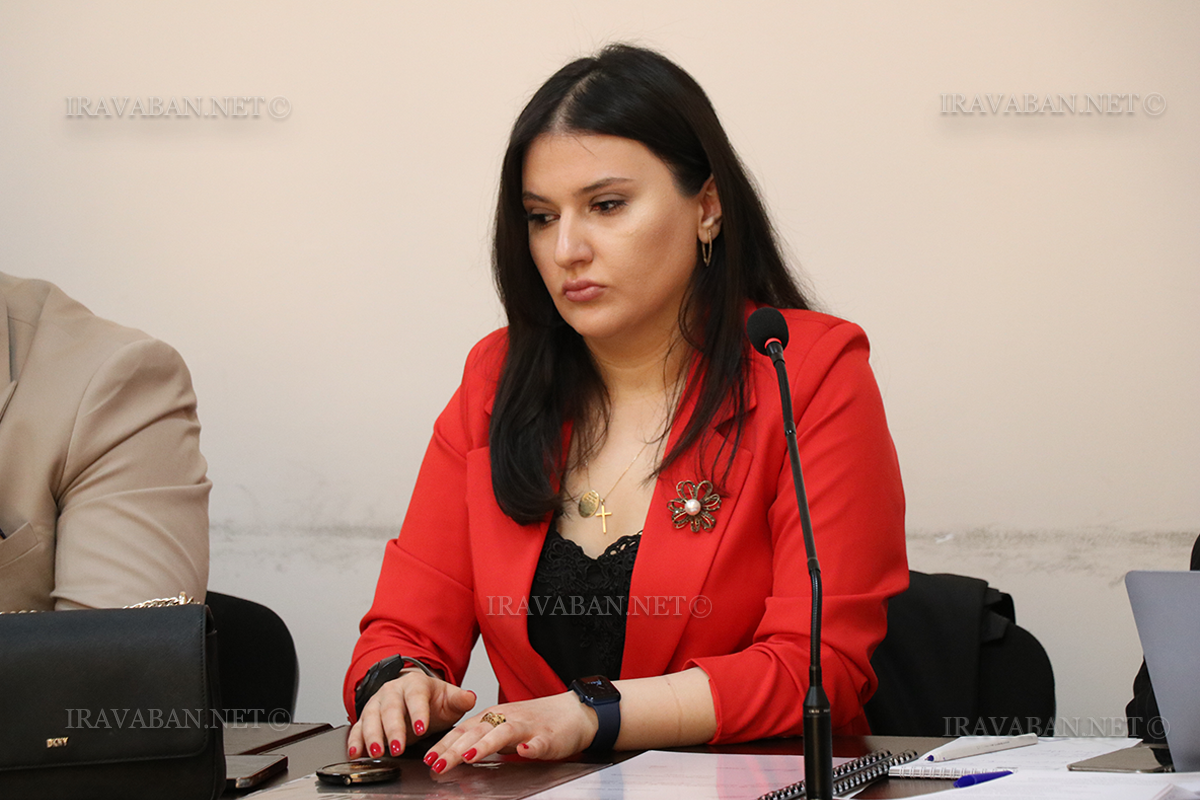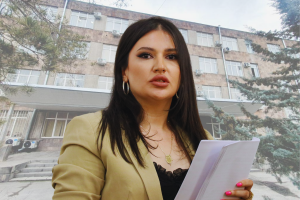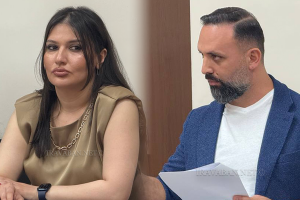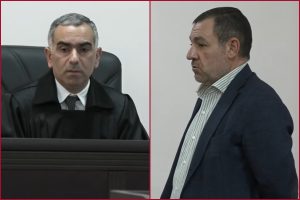The trial of Judge Arusyak Aleksanyan, her assistant Tamara Petrosyan, and lawyer Erik Aleksanyan continued today, February 5, at the Anti-Corruption Criminal Court. The session is presided over by Judge Vahe Dolmazyan.
On October 17, 2022, the Supreme Judicial Council approved the Prosecutor General’s Office’s motions to initiate criminal prosecution against Judge Arusyak Aleksanyan and consent to her deprivation of liberty. Within the same case, lawyer Erik Aleksanyan was also charged under Article 46-441 of the Criminal Code for aiding an official in abusing power or official authority or influence derived from it, or exceeding authority. Arusyak Aleksanyan’s assistant Tamara Petrosyan was also charged in this case.
According to the charges, the judge made an obviously unjust judicial act and abused official powers. She granted the motion of Erik Aleksanyan, the defense lawyer of Sergey Grigoryan, known by the nickname “Faz” and considered a criminal authority, changed his preventive measure, and released him from detention for a bail of 2.5 million drams. Sergey Grigoryan is a friend of Arusyak Aleksanyan’s brother, Rustam Aleksanyan.
According to Iravaban.net, senior prosecutors Robert Mheryan and Arman Baghdasaryan from the Department for Cases of Crimes Against Constitutional Order, State and Public Security of the Prosecutor General’s Office were involved in the case during this session.
Defendant Erik Aleksanyan made his closing statement.
He said that the evidential base, which constitutes the majority of the criminal proceedings, has no legal basis, including the results of wiretapping, and evidence obtained within its framework should also be declared inadmissible.
He noted that operational-investigative measures revealed that Arusyak Aleksanyan demanded and received 2-2.5 million drams in bribes for making various judicial acts in different cases, and the person conducting these measures requested appropriate permission to work towards confirming or refuting this information: “I think it’s obvious that an operative officer cannot request permission from a superior to conduct operational measures that do not relate to an aggressive nature. The law ‘On Operational-Intelligence Activities’ clearly states that this employee has no obligation to seek permission from superiors regarding conducting operational inquiries, information acquisition, or external observation without using technical means. This is in no way connected with superior’s permission.”
According to the defendant, the report provided for conducting the relevant measures has a credibility issue, and despite the court allowing “aggressive” intervention regarding Arusyak Aleksanyan’s rights, no data was obtained about bribe-taking proposals by Aleksanyan.
In Erik Aleksanyan’s assessment, when submitting the motion to extend wiretapping periods, the predominant factual data should have been not the same report, but the protocol compiled as a result of the first wiretap.
Noting that his charges and Arusyak Aleksanyan’s are interconnected, Erik Aleksanyan said there is no data in the criminal proceedings indicating that Arusyak Aleksanyan’s first assignment was wrong, according to him, such data could not have been obtained: “The prosecution side does not justify, and cannot justify, why the first assignment was wrong, we know very well that there is no regulation about this by law.”
He quoted from Judge Gagik Poghosyan’s testimony given in court.
He said that answers to questions relevant to the process of returning the motion to Arusyak Aleksanyan and reassignment can be found in the testimonies of witnesses Naira Petrosyan, Maria Petrosyan, and Sona Danielyan.
The defendant said it should not be a secret that he cannot be a facilitating subject for making an unjust judicial act, as it is outside his authority: “Because of this, they’ve brought the second charge, so that they could get to lawyer Erik Aleksanyan. Nevertheless, this charge was born because there is no other option to get to Erik Aleksanyan – either this charge must be added, or he cannot have any status other than that of a witness.”
According to him, the prosecution could not have failed to understand that it is meaningless to talk about exceeding authority when Arusyak Aleksanyan was unaware of the reassignment sheet and verbal request circumstances.
“I think it’s more than obvious that the act attributed to us has no legitimate basis in the context of Article 441. We have gone through these 2.5 years with honor, only Arusyak Aleksanyan and I know what we’ve been through, what we’ve been forced to see, how much it has cost us, no one understands and knows what we have also sacrificed during these years, having our position and status in jurisprudence, conditioned by all this. We haven’t broken, and I can hardly imagine a situation where I could break.
I ask you to make a fair judicial act, and that is that there is, in reality, no corpus delicti of exceeding authority,” – this is how defendant Erik Aleksanyan concluded his speech.
His defender Alexander Kochubayev addressed two issues: investigative jurisdiction and obtaining permission to conduct operational-investigative measures.
He noted that evidence acquisition was carried out by improper subjects, and in the context of using data obtained through significant violation of the law, all evidence obtained by the NSS body is inadmissible.
“They found something that has corpus delicti,” – this is how the defender characterizes the alleged bribe-taking process by defendant Arusyak Aleksanyan, also noting that this criminal proceeding has completely violated the entire concept of obtaining permission to conduct operational-investigative measures.
With this, the session was postponed, the next one will take place on February 19.
Mariam Shahnazaryan



